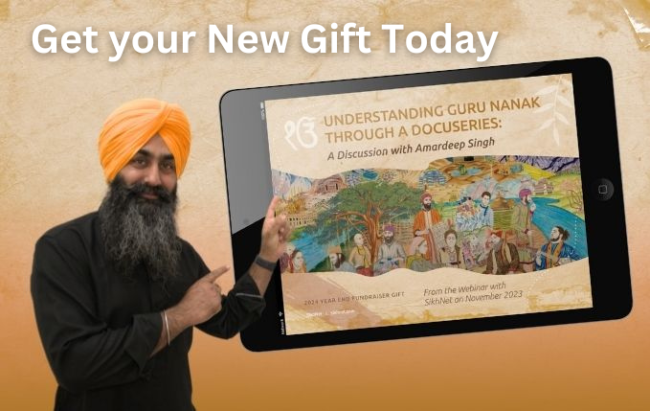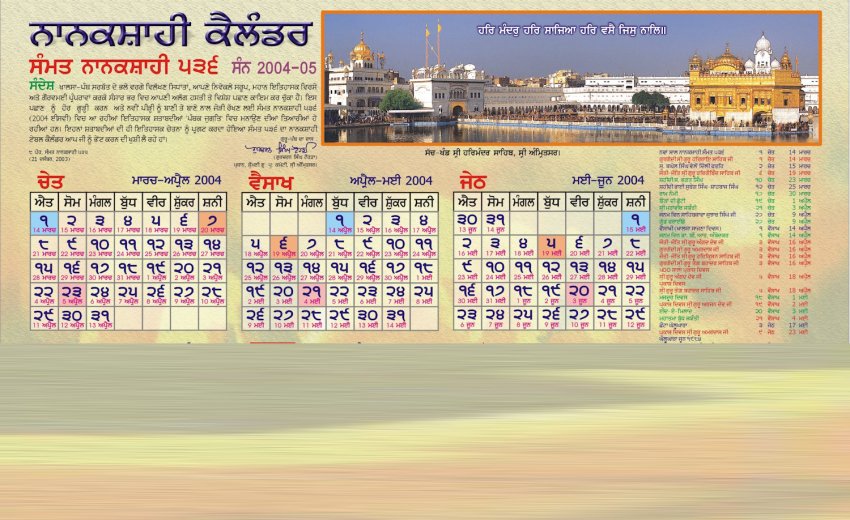Forget the exact date, we are not even sure when Founder of the Sikh faith, Guru Nanak, was born – around April or months later in September. The year may not be quite so much in doubt. Similar questions surface about the date ascribed to Guru Gobind Singh’s birth. The absence of equally hard lines drawn about birth dates of the eight intervening Gurus is cold comfort; it does not reflect any better precision and accuracy
Every year a war of words erupts on the issue and the brightest Sikhs engage in almost death-defying maneuvers. Reputable scholars engage in unprecedented literary duels. True, that such precision about dates remains the bread and butter of professional historians. More important is how ordinary people – Sikhs and non-Sikhs – deal with such ambiguity.
I was often tempted to enter the fray like any 10 O’clock scholar but deferred the opportunities hoping for a more peaceful moment and a more apt time. But recently an essay by a reputable Sikh scholar waylaid me with the rhetorical challenge “With such ignorance about when Guru Nanak and Guru Gobind Singh were born how can we ever stand as a great religion?”
So, let’s take the bull by the horns! But first… a tangential but pertinent sidebar.
For most people, the simple historical narrative of their family is the most valued. But even this track is rarely linear; many awkward kinks shape the journey. About 40 years ago I sponsored my parents’ migration to America. They had no marriage license, no birth certificates for their four adult children and, to top it all, did not use the same last name. My father used Singh, my mother Kour with an “o” instead of the traditional “a.” The questioning by immigration personnel almost framed my parents as the super-liberated couple of the last century. Yet, we prevailed.
Then I discovered that my brother’s records were even hazier. Was he born the year recorded at his school or one year later? Our mother was unsure. Some years later we discovered that my own wife’s actual birth day differs from her grade school’s official record by one day. I assure you our kinship was not altered by the ambiguity. But as T. S. Eliot opined, such are the “cunning passages and contrived corridors of history, that drive us by vanities.
We are ordinary people. How about the movers and shakers of dynasties, nations and religions?
Ancient but formidable documents suggest (but do not insist) that Jesus was likely born between 6 and 4 BC, perhaps around the end of March. Other writings indicate that his birth coincided with the appearance of the Star of Bethlehem. December 25 as Christmas Day may have no rational basis except that it coincided with popular pagan holidays. The Greek and Russian Christians, celebrate Christmas, but not on December 25th, and some Christian sects celebrate the birth of Jesus 13 times a year.
So, what exactly is Guru Nanak’s birthday, or shall we celebrate him more than once a year?
Similar conflicts arise when we look at the life of Mohammed. We know a bit of his stay in Mecca and move to Medina and of his wife, but nary a birth date.
Moses seems to have been literally picked up by Pharaoh’s daughter while he was floating on the Nile River as a newborn baby and raised in Egypt. It was in his adult years that he became the preeminent Jewish prophet. The basic chronology of his life would be: Pharaoh/Egypt/Shepherd/Burning Bush/Israel/Prophethood. with absolutely nothing on date or place of birth.
No one knows exactly when and where Ram, Krishna or the many gods and goddesses of the Hindu pantheon materialized or under what circumstances they left this earth. Old and revered documents provide strong suggestions but they are not evidentiary history or constitute proof beyond doubt and alternative hypotheses.
Exactly on what date were Pythagoras or Socrates born? Or, for that matter Newton, Pasteur or even many giants of modern science?
Sikhi is a comparatively young faith but presents many of the same caveats noted in the others. I deliberately focused only on Christianity, Hinduism and Judaism with a touch of Islam, intentionally leaving out Mankind’s many other faiths.
Biographical minutiae neither enhance a life nor diminish any faith discipline. Religions serve to connect us to timeless values, and teachings that define a purposeful life for us here on earth.
Over the eons many people (including Hindus, Jews, Christians, Muslims and Sikhs, among others) have evolved an endless variety of calendars to track their journey. For instance, the present year 2019 is year 5779 to the Jews; Bikrami year 2076 as Hindus keep track of the years; Hijri year 1440 for Muslims, and year 551 in Sikh reckoning (Nanakshahi calendar). Such are the vagaries of our calendar systems. Interestingly Hindus even today recognize more than one calendar with differences in authenticity, application and historical narrative.
I do not mean to demolish the significance of historical nuggets – details of time and circumstance about iconic Masters of humanity. Conversations on calendars and the events therein should continue to develop clarification as needed – this is how our historical knowledge grows. Keep in mind that a tempest in a teapot is not an existential threat. Good historians know that historical narratives are rarely etched in stone. Continue the research, but please spare us the accompanying vitriol, it only diminishes the cause.
Even though I am not his fan, for once, we would all benefit from a recommendation by an Indian politician – the Congress Chief Minister of Punjab, Captain Amrinder Singh, – to designate Guru Nanak’s birth celebration as World Peace Day.
The variety of the calendar-systems are a testament to the richness of the human journey My plea is to keep a healthy perspective on our views. Are my reflections a futile exercise in the tyranny of exactitudes, or a potpourri of trivia? I leave that to you, dear reader, tempus fugit, or as they say time flies
I submit to you one line from Guru Granth reminding us that “My Lord is forever new, He is the Giver, forever (“Sahib mera neet navaaN sadaa sadaa dataar” p. 660). Instead of haggling over a prophet’s birthdate why not spend time and energy exploring the meaning of a prophet’s message, perhaps we can then, in T.S. Eliot’s wish “apprehend the point of intersection of the timeless with time.”






